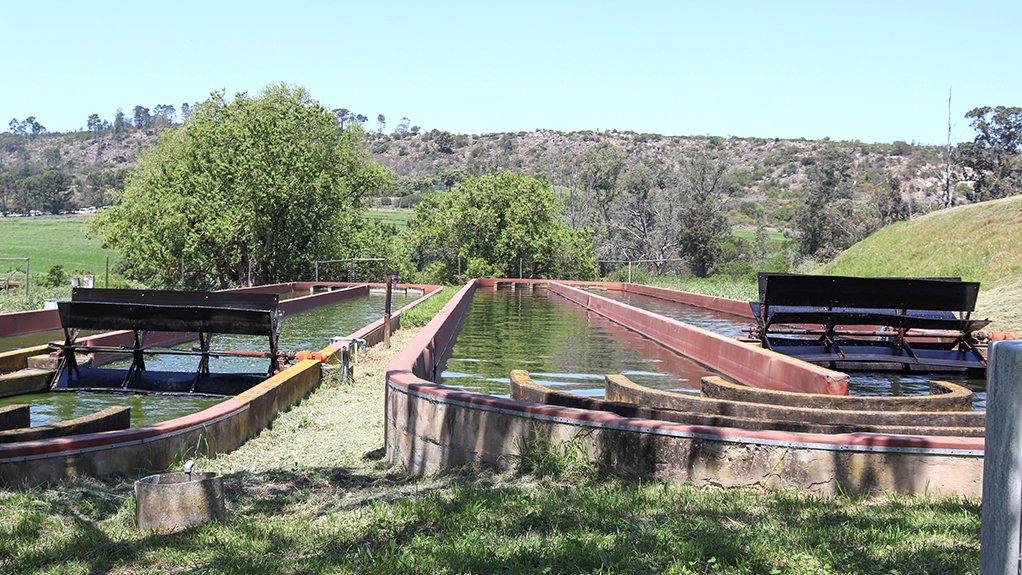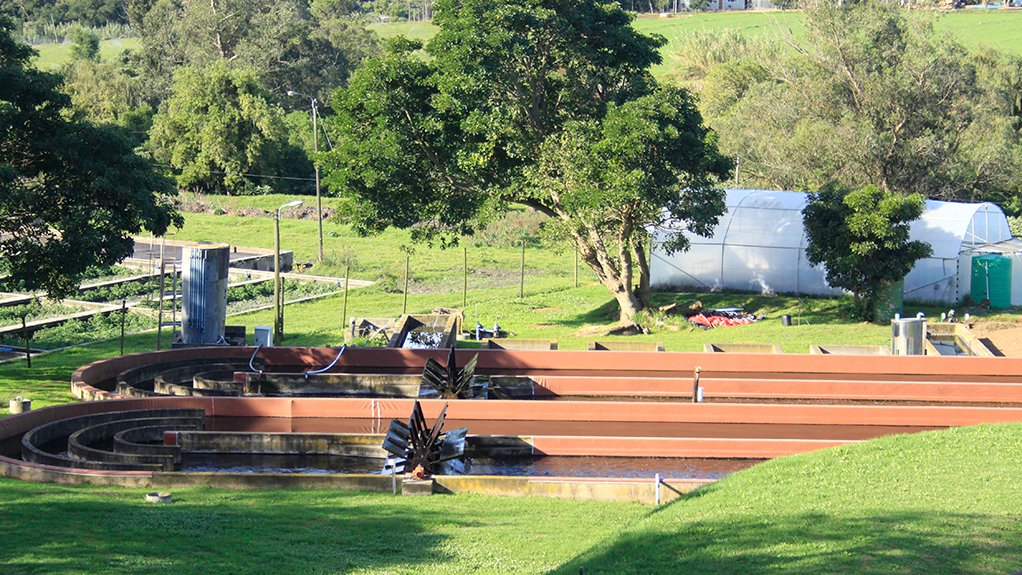Circular economy enables value-added by-products



NATURAL SOLUTIONS Nature-based solutions create by-products such as biogas and minerals
ADDED VALUE Mineral-mining organisms in biomass that have adapted to the water treatment processes can extract certain minerals from the wastewater
Nature-based solutions assist in creating a more circular economy and by-products from the treatment can create further value for the water treatment industry, says Rhodes University’s Institute for Environmental Biotechnology (EBRU) director Professor Keith Cowan.
By-products can appeal to various markets and increase the overall market value of nature-based water treatment processes.
He says possible by-products and beneficiation from wastewater include useable water, as well as biomass by-products such as minerals and biogas.
Water is a carrier of minerals and nutrients. As most bottled water contains little to no nutrients and minerals, it impacts on the health of frequent drinkers.
Nature-based water treatment processes uses various components when treating raw water, which makes it becomes possible for people to consume.
Sewage water produces several waste products at its various stages of treatment and, by the end of that treatment, the water has been treated to an almost potable level, which is the same as the water leaving a wastewater treatment plant, Cowan notes.
Through nature-based solutions, substances that were carried in sewage water are precipitated out of the water and these substances can be refined into products of value.
Cowan explains that an average litre of water in a wastewater treatment plant contains about 100 g dry mass of solid material, while an average litre of water in a raw water treatment plant can contain about 1 g. This results in 101 g of solid substances, or biomass, that is not used or beneficiated.
Such biomass comprises nitrogen – currently derived from fossil fuels – and phosphorus – which is mined along with sulfur, potassium and other micronutrients and microelements.
Currently, these micronutrients and microelements must be sourced from alternative suppliers to fortify various foods and drinks because of the lack of these substances in contemporary diets.
Biomass can further be used by converting or biorefining it into different products with varying value.
Drying the biomass allows for it to be composted to generate soil elements to enrich soil and, thus, vegetation such as crops.
Biomass can also be subjected to fermentation to convert it into methane-rich biogas, which can then be used as energy.
Microorganisms in the biomass can also have immense value, says Cowan.
He elaborates that some of these microorganisms are mineral-mining organisms that have adapted to the water treatment processes and can extract certain minerals from the wastewater.
These minerals can range from heavy metals to rare earth metals, all of which can be used in the medicine, cosmetics and pharmaceuticals industries, besides others.
Further, polymers that hold the biomass together can be purified.
Many polymers in biomass have emulsification and flocculant properties, which can be used as natural succulents in various industries.
“We can bring these down to almost the molecular level and in so doing, harvest an enormous amount of material,” says Cowan.
Currently, waste from traditional treatment processes often ends up as sludge that goes to landfill, and can create challenges wherever it is relocated.
Therefore, there is a significant incentive for such waste to go through beneficiation processes to create by-products that provide value.
Nature-based water treatment solutions can also create renewable energy through various avenues.
One such avenue is to use the methane that becomes available as a result of anaerobic processes taking place in nature-based water treatment plants.
Anaerobic reactions largely occur without the presence of oxygen, which reduces carbon to its smallest entities including carbon monoxide, carbon dioxide and methane, along with a few other non-carbon molecules.
Methane is a high-energy-containing compound that can be combusted or flared. It is also a damaging greenhouse gas and about 22 times more potent than carbon dioxide.
Therefore, there is a need to try to capture methane to reduce emissions into the atmosphere.
Upon capture – among other uses – methane can be used to drive generators or by directly flaring it.
Another way of using methane is by converting it to a transportation fuel.
By manipulating the composition of the feed to bespoke digesters or anaerobic reactors during wastewater treatment it is possible to derive quality biogas at a level that will enable the biogas to power any internal combustion engine to drive vehicles or for other purposes.
Article Enquiry
Email Article
Save Article
Feedback
To advertise email advertising@creamermedia.co.za or click here
Press Office
Announcements
What's On
Subscribe to improve your user experience...
Option 1 (equivalent of R125 a month):
Receive a weekly copy of Creamer Media's Engineering News & Mining Weekly magazine
(print copy for those in South Africa and e-magazine for those outside of South Africa)
Receive daily email newsletters
Access to full search results
Access archive of magazine back copies
Access to Projects in Progress
Access to ONE Research Report of your choice in PDF format
Option 2 (equivalent of R375 a month):
All benefits from Option 1
PLUS
Access to Creamer Media's Research Channel Africa for ALL Research Reports, in PDF format, on various industrial and mining sectors
including Electricity; Water; Energy Transition; Hydrogen; Roads, Rail and Ports; Coal; Gold; Platinum; Battery Metals; etc.
Already a subscriber?
Forgotten your password?
Receive weekly copy of Creamer Media's Engineering News & Mining Weekly magazine (print copy for those in South Africa and e-magazine for those outside of South Africa)
➕
Recieve daily email newsletters
➕
Access to full search results
➕
Access archive of magazine back copies
➕
Access to Projects in Progress
➕
Access to ONE Research Report of your choice in PDF format
RESEARCH CHANNEL AFRICA
R4500 (equivalent of R375 a month)
SUBSCRIBEAll benefits from Option 1
➕
Access to Creamer Media's Research Channel Africa for ALL Research Reports on various industrial and mining sectors, in PDF format, including on:
Electricity
➕
Water
➕
Energy Transition
➕
Hydrogen
➕
Roads, Rail and Ports
➕
Coal
➕
Gold
➕
Platinum
➕
Battery Metals
➕
etc.
Receive all benefits from Option 1 or Option 2 delivered to numerous people at your company
➕
Multiple User names and Passwords for simultaneous log-ins
➕
Intranet integration access to all in your organisation


















